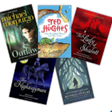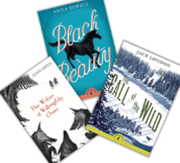The overarching aim for English in the national curriculum is to promote high standards of language and literacy by equipping children with a strong command of the spoken and written language, and to develop their love of literature through widespread reading for enjoyment.
Reading Curriculum Overview
| Year | Autumn 1 | Autumn 2 | Spring 1 | Spring 2 | Summer 1 | Summer 2 |
|---|---|---|---|---|---|---|
| EYS |
Friendship & Animals
|
Stars & Space
|
Superheros
|
Traditional Tales
|
Growing
|
Seaside
|
| Humanities | Transition | Locality (Geograhy) | Living Memory (History) | Environment (Geography) | Travel and Transport (History) | Weather and Fieldwork (Geography) |
| Science | Everyday materials, seasonal change | Everyday materials, seasonal change | Animals inc. Humans, seasonal change | Animals inc. Humans, seasonal change | Plants, seasonal change | Plants, seasonal change |
| 1 |
History - Living Memory
|
Geography - Locality
|
Living Memory
|
Animals (Science)
|
Traditional Tales & Poetry
|
Stories & Poems
|
| Humanities | Chiswick History | Local area (Chiswick) | The Great Fire of London | Hot and Cold Places | Pocahontas | Comparing Countries of the UK |
| Science | Light | Space | Human lifestyle | Habitats | Changing materials | Mixing and Making |
| 2 |
Stories, Plays and Poetry - Contemporary
|
Fairy Stories & Poetry - Classics
|
History - Events, Beyond Living Memory, Great Fire of London
|
Science - Living Things, Habitats, Plants
|
Traditional tales & Poetry - Contemporary
|
Geography - UK, Rivers & Seas
|
| Year | Autumn 1 | Autumn 2 | Spring 1 | Spring 2 | Summer 1 | Summer 2 |
|---|---|---|---|---|---|---|
| Humanities | Prehistoric Britain | Villages, towns and cities | Shang Dynasty | Mountains, Volcanoes & Earthquakes | Ancient Greece | Water and Weather |
| Science | Animals inc. Humans | Rocks | Rocks | Forces | Light | Plants |
| 3 |
Reading depth: Stories and Poetry
|
Fairy Stories and Poetry
|
Forces, Magnets and Rocks
|
Science - Mountains and Rivers
|
Light and Environment - Poetry
|
Stories, Plays & Poetry
|
| Roman Britain | Rivers | Anglo Saxons & Scots | Migration | Vikings | Natural Resources - Northern Chile | |
| Animals inc Humans - The digestive system | Electricity | States of Matter | States of Matter | Living things and their habitats | Sound | |
| 4 |
Science - Living things & Habitats
|
Stories and Poetry - Different Forms
|
Myths and Legends - Different forms
|
Geography - Europe
|
Vikings
|
Stories, Plays & Poetry - Different Forms
|
| Year | Autumn 1 | Autumn 2 | Spring 1 | Spring 2 | Summer 1 | Summer 2 |
|---|---|---|---|---|---|---|
| Humanities | The Kingdom of Benin | Slums | Medieval Monarchs | Biomes | Changing Britain | Energy and Sustainability |
| Science | Forces | Forces | Properties and change of materials | Properties and change of materials | Space | Living Things |
| 5 |
Other cultures & traditions / poetry - Wider Range
|
History - Victorians
|
Modern Fiction & Poetry - Wider Range
|
Myths & Legends & Poetry - Wider Range
|
Science - Space
|
Geography - North & South America / The World
|
| Humanities | Industrial Revolution | Local Fieldwork | Civil Rights | Population | Twentieth Century Conflict | Globalisation |
| Science | Animals inc. Humans | Electricity and Light | Living things and Habitats | Evolution | Sustainability | Evolution |
| 6 |
Modern Fiction and Poetry - Wider Range
|
Geography - Coasts
|
Literary Heritage - Plays and Poetry - Wider Range
|
Science - Evolution and Inheritance
|
History - War
|
Traditional Tales and Poetry - Wider Range
|
English National Curriculum programme of study
Intent
Reading lies at the heart of the curriculum at The William Hogarth. We are dedicated to enabling our children to become lifelong readers and we believe reading is key for academic success.
As a result, our children are given the best opportunity to achieve outstanding progress in reading.
We also understand how important it is for our children to enjoy reading. We have therefore put together a carefully crafted curriculum to ensure that the reading journey our children take with us is a successful one, which builds on reading skills, fluency and correctly identifies children’s reading ages. This helps to target children when needed and prepares them for the next stage in their education; this includes fostering a love of reading which will take them through their adult life.
Implementation
-
Planners are used as a regular form of communication where children and parents are encouraged to record reading experiences.
-
Children take part in daily comprehension lessons, where they are exposed to an increasingly complex range of different texts and can demonstrate and apply their understanding and thinking behind these.
-
We have an excellent library and a wide range of reading books in every classroom, which cater for children at all different levels of their reading.
-
We encourage the reading of classics and contemporary.
-
All children choose a reading book to take home and this reading book is changed frequently (Each year group have set expectations)
-
Each classroom has a selection of books, which are directly linked to the class topic. This offers opportunities for children to apply their reading skills across the curriculum.
-
The class teacher reads each day to children. This can be a book that the teacher recommends to the class or a recommendation from a child.
-
Children are listened to at least once a week and discussions around reading take place.
-
Daily discreet teaching of phonics and early reading is supported by RWI.
-
Parents are encouraged to listen to their child read every day and to read stories aloud as much as possible.
-
Reading challenges and poetry competitions are a regular feature of the school year with identified recommended reading lists for each year group.
-
We encourage a love of reading through author visits, library visits, access to a range of text whilst children learn their reading skills and become fluent throughout the school
-
We regularly assess children’s comprehension skills and reading ages to identify and target support when needed. For example: - PiXL.
-
We encourage regular communication through the use of a planner where students and parents are encouraged to reflect on the reading.
Impact
We ensure that William Hogarth Readers, are highly competent and fluent readers who can recommend books to others as well as demonstrating a love for reading. They will also have a thirst for reading a range of text genres including poetry, fiction and non-fiction texts. Our children will be able to debate and discuss an author’s work, their use of language and the impact this has on the reader. William Hogarth Readers are expected to choose and read books that will challenge their reading experiences. Which will enable them to achieve outcomes at least in line with their peers nationally. It is our expectation that the children of our school will seek opportunities to communicate their research to an audience including peers, adults and the wider community.
https://www.gov.uk/government/publications/national-curriculum-in-england-english-programmes-of-study/national-curriculum-in-england-english-programmes-of-study#:~:text=Aims,through%20widespread%20reading%20for%20enjoyment.
|
Teachers use prosody to model how to read with fluency and expression. |
|
|



|
Stories are put into a context to aid understanding. |


Children become fluent readers with support.
|
Children are exposed to a love for reading by adults. |



Partner reading supports children’s development of sharing stories.
Exposure to different genres and comprehension skills in order to understand key skills.
Reading Challenge










































